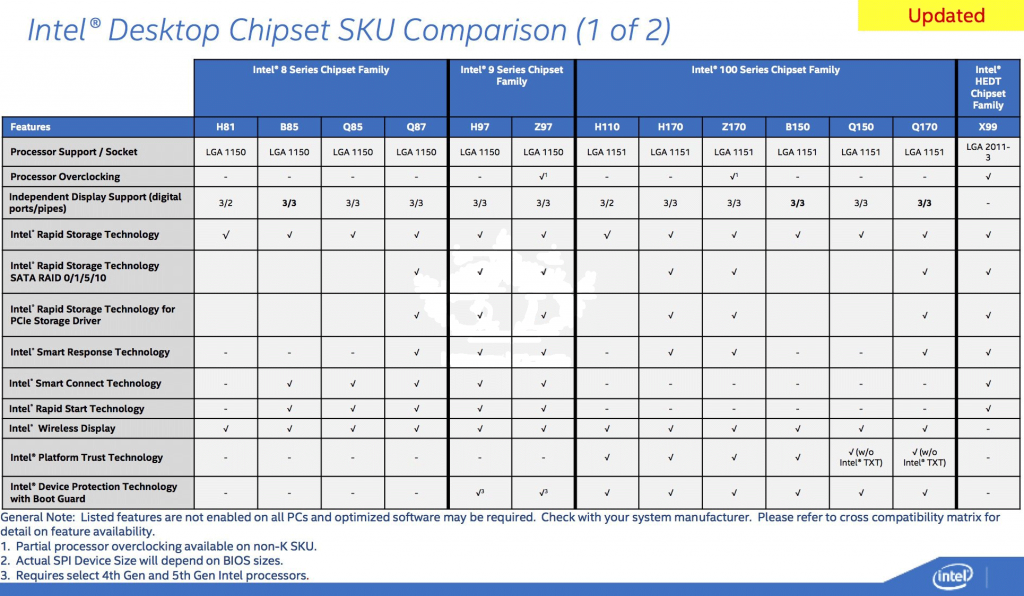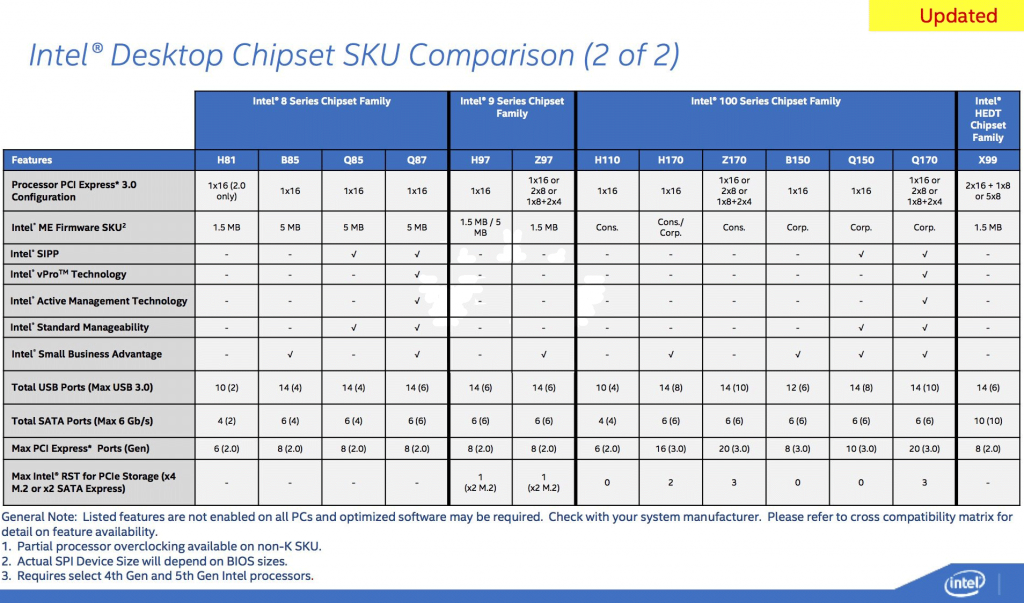A web-site has published specifications of Intel Corp.’s 100-series core-logic sets designed for the code-named “Skylake” microprocessors due in the third quarter of the year. The new platforms will receive a significant upgrade of PCI Express lanes, which will improve their storage and multi-GPU capabilities.

The family of “Skylake”-supporting Intel 100-series chipsets will include six models: Intel Z170, Intel H170, Intel Q170, Intel Q150, Intel B150 and Intel H110, reports Chinese VR-Zone. Traditionally, different core-logic sets will be aimed at different market segments. The only SKU that will support overclocking will be the Z170. Another core-logic – the Q170 – will support corporate-oriented technologies like vPro, active management, small business advantage and some other.
The advanced 100-series chipsets – such as Z170, Q170 and H170 – will receive substantial upgrade of PCI Express lanes. The Z170 and the Q170 core-logic sets will feature 20 PCI Express 3.0 lanes, whereas the H170 will support 16 PCIe 3.0 lanes.
The expanded support of PCI Express 3.0 will let mainboard makers to implement multiple SATA Express and M.2 ports for high-performance solid-state drives with up to 4GB/s of bandwidth (in case of PCIe 3.0 x4 interface). In addition, it will be possible to implement multiple additional PCI Express x8/x86 slots for multi-GPU configurations.
Intel did not comment on the news-story.
Discuss on our Facebook page, HERE.
KitGuru Says: The improved PCI Express support by the new core-logic sets will make it considerably easier for mainboard makers to implement modern storage interfaces, something that will make SSD makers (including Intel) very glad as this will boost demand for higher-end SSDs.
 KitGuru KitGuru.net – Tech News | Hardware News | Hardware Reviews | IOS | Mobile | Gaming | Graphics Cards
KitGuru KitGuru.net – Tech News | Hardware News | Hardware Reviews | IOS | Mobile | Gaming | Graphics Cards




